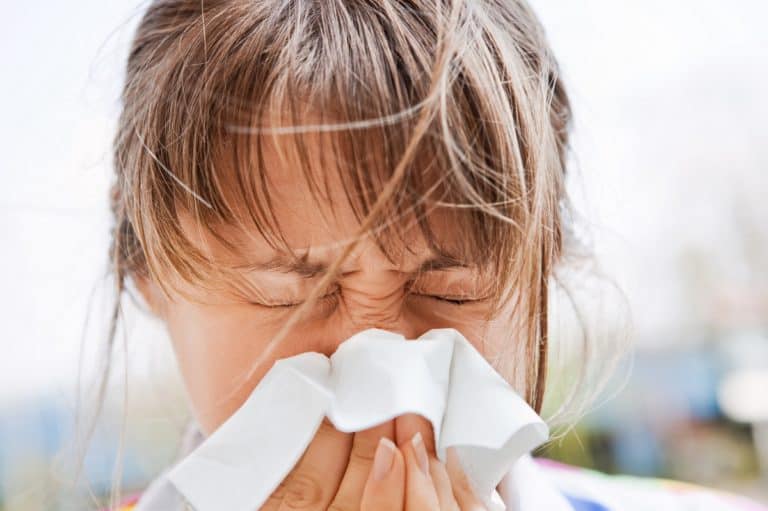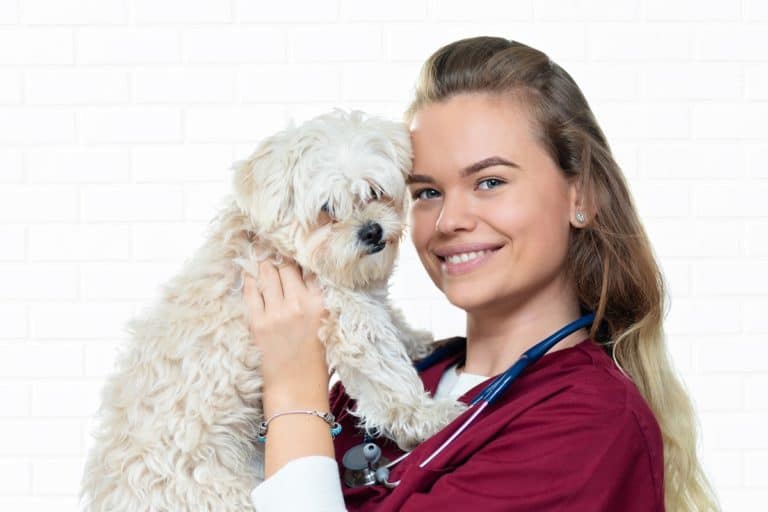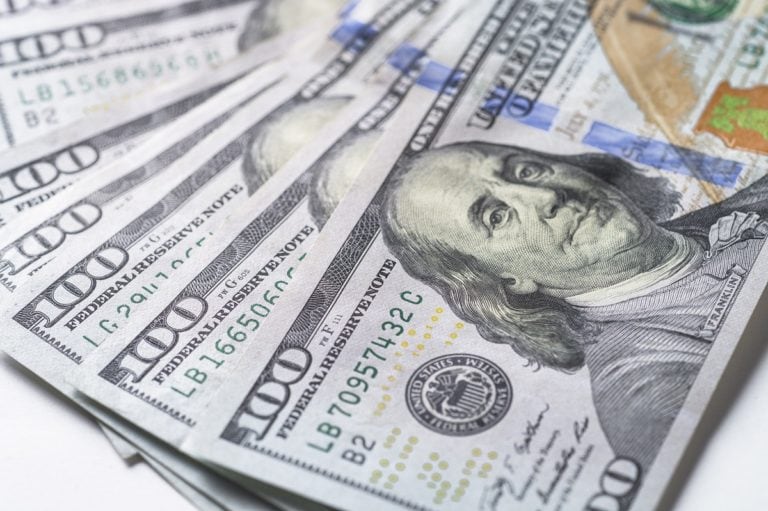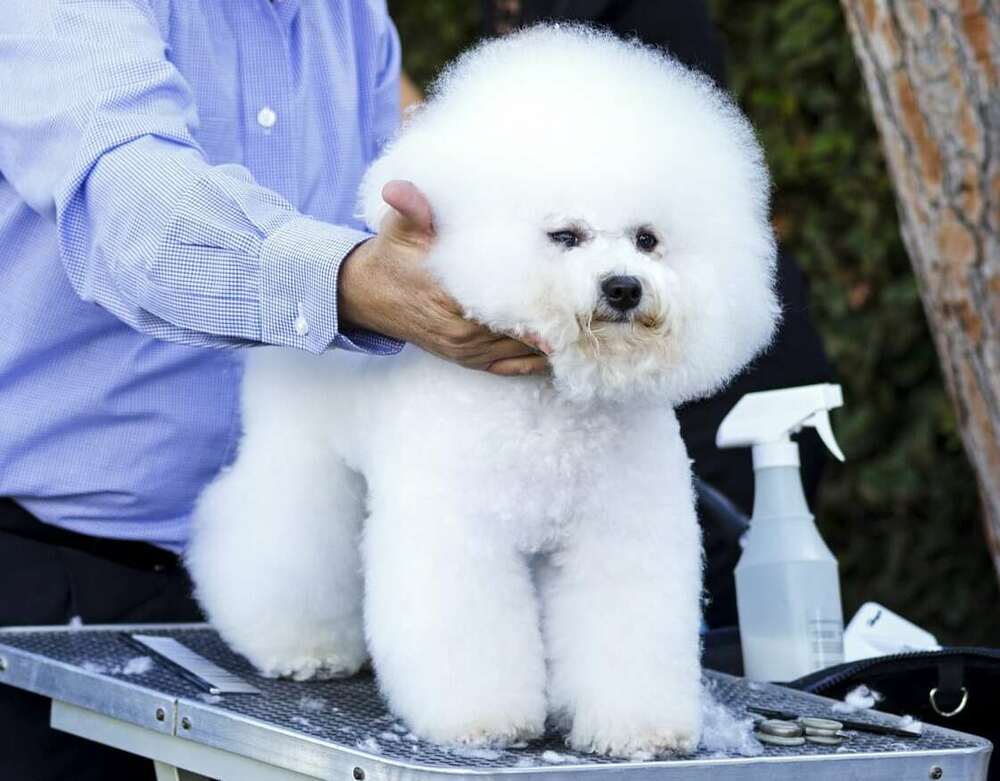Similar to peanuts, people can be allergic to dogs too. The fur and dander that are shed naturally are the main reasons for the allergies. Getting a hypoallergenic dog breed is an option, and that’s where the Bichon Frise come in.
But are these breeds really hypoallergenic? And what does it mean to be hypoallergenic in the first place?
The Bichon Frise breed is considered hypoallergenic. These dogs have fur that grows continuously and rarely sheds. This minimizes the amount of pet dander floating around in your home, which is the main cause of the allergic reactions your family or guests may be suffering.
Strictly speaking, this “hypoallergenic” label does not guarantee that people with dog allergies will not be affected at all from contact with the breed. However, they are significantly easier to live with given the circumstances.
With this in mind, the Bichon Frise is easily one of the best dog breeds for families with allergies.
Let us take a closer look and what sets the breed apart and how to get the most out of this hypoallergenic status.
Are Bichon Frise Good For Allergies?

Bichon Frise dogs are a mixed breed result of mating poodles with barbets. The combination of these two produced a dog with signature tightly curled fur texture. This hair grows long and thick but is especially strong. As a result, it rarely sheds. It is for this reason that Bichon Frises are considered hypoallergenic dogs.
In order to understand this then you have to understand what it is that makes people allergic to dogs. It is usually as a result of exposure to pet dander which is a collection of dead skin and fur. With the minimal shedding nature of the Bichon, there is not a lot of dander lying around to wreak havoc on the susceptible.
However, this does not mean that they are 100% hypoallergenic. In fact, there is no dog breed that can be. This is because the allergies are sometimes triggered by contact with other dog products including saliva.
There is also the fact that Bichon’s, however minimally, still shed dead skin and loose fur. As a result, you have to maintain proper grooming practices as well as investing in good skin health for the dog in order to ensure that you get the full hypoallergenic benefits.
In a nutshell, if you are in the market for allergy-free dogs then the Bichon Frise breed is a good option. It may not offer a 100% guarantee but if you want to own a dog and still have your allergic friends and family comfortable in your home then this is as good as it gets.
Do Bichon Frise Shed A Lot? Grooming Tips For Bichon Frise
Bichon Frises do not shed a lot. This is due to the tightly coiled texture of their fur as well as the thickness of the strands. However, they still do experience some shedding and so you have to keep brushing the hair so it looks good and doesn’t turn into a matted mess. The Hertzko Self Cleaning Slicker Brush exists for this very purpose. The ergonomically built brush features fine, bent bristles that are ideal for dealing with this texture of fur.
Another important detail to factor in when it comes to grooming your Bichon is the fact that their hair grows really fast and thick. If you are not diligent with the trimming, the puffy cloud of fur will soon swallow the little one making everything from vision to eating a nightmare for the little puffball. In order to avoid this form of torture, it is best to schedule a trimming every month or two depending on how thick the hair is.
The signature white coat is one of the main reasons why these dogs are so wildly popular. It is also why you cannot afford to slack on grooming. White fur is unforgiving when it comes to showing stains and dirt. Washing on a weekly or fortnightly basis should help you avoid embarrassment. You could also use Wahl White Pear Brightening Dog Shampoo which in addition to conditioning the fur and helping with odor control has fur-brightening ingredients.
Finally, it is important to pay particularly close attention to the ear canals while cleaning. They tend to grow hair there and if it gets dirty and moist there may be growth of microorganisms that cause infection.
What Health Problems Do Bichon Frise Have?
Bichon Frise have an average lifespan of about 12-15 years which is pretty long for dogs. For the most parts of their lives, they are generally healthy.
In their lifetimes, they suffer mainly from simple diseases that are more inconvenient than they are deadly as we will see in the next sections. However, they also are prone to some cancers which are responsible for most of their deaths.
Here are some health problems that Bichon Frises have:
Allergies
Bichons are allergic to a number of things including dust, pollen, ticks, chemicals, fabric, and much more. These present mainly as either respiratory reaction or allergic dermatitis and may require long term medication for improved quality of life.

Ear Infections
These tend to be a lot more serious and could even lead to hearing loss if not dealt with properly. The infections are as a result of overgrowth of germs from poor hygiene around the ears and in the external canals which often have a lot of hair.
Bone Diseases
These are often associated with small breed dogs and Bichons are not an exception. They include patellar luxation, hip dysplasia, and Legg-Perthes. They often hinder proper motility and with the reduced activity may result in obesity.
Portosystemic Shunts
This is where blood rich in nutrients as well as toxins bypasses the liver where it needs to go for appropriate redirecting. If not handled promptly, it could be fatal for the dog.
Cancers
These are the leading causes of death with Bichons and more often than not appear in old age after the age of 7 years. Hemangiosarcoma, reproductive system tumors, and skin cancers are some of the main culprits here.
How To Your House Allergy-Proof With A Bichon Frise
As earlier mentioned, the low shedding nature of this dog breed may make it ideal for families with allergies but it does not guarantee full protection from exposure. Bichons love to cuddle and as a result may leave their fur, saliva, and dead skin however little all over your clothes, upholstery or even carpeting. To help minimize this exposure, here are a few simple hacks that could come in handy:
Get Them Pet Clothes To Minimize Shedding
These help to reduce the amount of fur collecting on different surfaces in your home. The BONDOGLAND Small Dog Long Sleeves Pajamas are awesome in this case as they offer full coverage over the torso and all 4 limbs.
Vacuum Regularly
Over time, the little amounts of dander that the Bichon sheds will become problematic. So invest in something like the EyeVac Home Touchless Stationary Vacuum to get rid of the allergens before they accumulate to serious levels.
Invest In Air Purifiers
The RENPHO Air Purifier for Allergies and Pets Hair is the ideal option for allergy-proofing your home. It has a 4 stage filtration system that gets everything from fur and dead skin to fine dust. That way your air is free of any allergy-inducing Bichon products.
Get Rid Of Unnecessary Carpeting Or Throw Rugs
These fabrics only encourage the buildup of fur and dead skin. They are also more difficult to clean than bare floors and uncovered upholstery as the fabrics hold tighter to the dander. Without them, cleaning up after your Bichon will become a whole lot easier and more effective for allergy prevention.
Are Bichon Frise So Expensive Because They Are Hypoallergenic?

The exact price tag of course depends on a number of factors including the age, the purity of the breed, the breeders and even the gender. Whatever the case, it is fair to conclude that though not the most expensive, these dogs are pretty pricey.
On a side note, you may be lucky and get your hands on a Bichon Frise for free by adopting one from a rescue. However, the chance of getting a purebred Bichon Frise from rescue is not high.
One of the main reasons for this high price range is the hypoallergenic status that Bichons enjoy. There are not many dogs out there that are considered decent for people with allergies, which makes the demand for them in this regard significantly higher. As a result, the price is also pretty high.
Another possible explanation for the hefty purchase price is the hype behind the cute fluffy dog aesthetic. Bichons are considered among the most adorable of all lap dogs with their little symmetrical features and puffy white coats. Their unique niche creates demand for them that allows breeders to hike up prices.
While they are a little expensive to purchase, Bichon Frise dogs are more than worth the investment. They make for fantastic family pets with their friendly, playful, cheerful, and affectionate temperament. There is also the fact that although they are a little stubborn, they are fairly intelligent which guarantees return on effort investments when it comes to training.
Finally, these dogs are pretty low maintenance. They are small so they do not eat a lot. They are generally healthy which means that short of routine vet visits you might not have to spend too much on health bills. With such low maintenance costs, it makes their steep purchase prices even easier to swallow.
Related Questions
Which Breed Of Dog Sheds The Least? There are several breeds of dogs that are popular as hypoallergenic options because of their minimal shedding. Among the small dog breed, you have options like the Bichon Frise, Cairn Terrier, and affenpinscher. There are also medium and large dog breeds that shed very little: the Poodles, Basenjis, and the Bedlington terrier.
What Is The Cheapest Hypoallergenic Dog Breed? If you want a hypoallergenic dog on a budget then you have several options to choose from. You could go with a Fox terrier which can be as cheap $400 through breeders or even less if you get yours from an adoption shelter. You could also go with the Chinese crested breed which costs $800 on average.
What Is The Most Hypoallergenic Dog? Technically speaking, there is no such thing as the most hypoallergenic dog. This is because even with minimal shedding, there may still be exposure to allergens through dog saliva and the little dander that does manage to escape. However, there are several breeds that are good for homes where guests or the people living there have allergies. These include the Bichon, several terrier breeds, poodles and many others.





